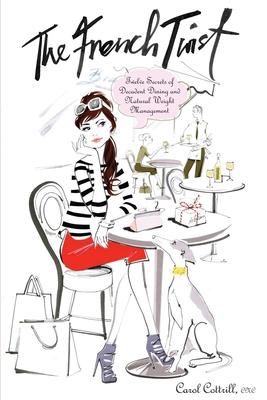Americans diet while the French dine. But is it true that French women don�� get fat? Is there a French Paradox��he counterintuitive notion that a diet that includes cheese, chocolate, and wine is associated with improved cardiovascular health and weight management?
The ancient wisdom and long-held traditions of the French have, in fact, been validated. Recent and groundbreaking nutritional science confirms what the French have known for centuries��here is no paradox at all. Enjoying high-quality, real, even so-called ��ecadent�� foods��repared with awareness and savored with pleasure and relaxation, and in moderation��nsures a lifetime of relatively effortless weight management. In The French Twist, nutritional consultant Carol Cottrill lets American women in on twelve secrets for organizing their personal rhythms and rituals around this concept, which can have a profound effect on their metabolism and weight.
Talk to a French woman and you may learn that, rather than a French Paradox, there exists a French Dilemma. The French love good food and wine, and certainly the idea of a pleasurable life of large meals with family and friends, but these preferences must be reconciled with their desire to be attractive and healthy. The French woman will allow herself to enjoy an excellent meal, but she will naturally eat less and walk more to compensate. She is quietly self-disciplined in her efforts, and she automatically observes portion savoir-faire. This typical and widely practiced solution to the French Dilemma results in what we perceive as the French Paradox.
The truth is that Americans are not different from people in other countries. We just have different eating habits. Americans are hungry for an alternative to the restrictions of dieting. The French Twist offers a realistic, commonsense, tried and true approach��ore values that include the concept of a person�� natural weight, nourishment, pleasure, healing, and the welfare of future generations.












